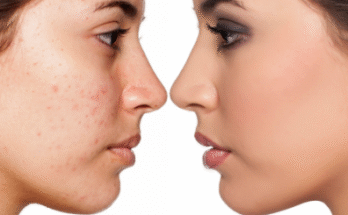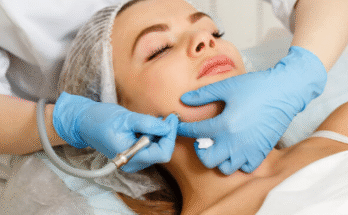Acne is something almost everyone deals with at some point in life. Whether it shows up during teenage years or later in adulthood, breakouts can be frustrating and sometimes even discouraging. The good news is that there are plenty of ways to take care of your skin and reduce the chances of pimples showing up. With a little consistency and healthy habits, you can keep your complexion clearer and feel more confident in your skin.
One of the most important steps is cleansing your face regularly. Our skin naturally produces oil, and throughout the day, dirt and sweat can also build up. If this isn’t washed away, it may clog pores and lead to acne. Using a gentle cleanser twice a day, in the morning and before bed, helps keep your skin fresh without over-drying it. Harsh scrubbing can irritate the skin and actually make breakouts worse, so it’s best to wash with a soft touch.
Hydration also plays a bigger role than many people realize. When skin is dry, it may try to compensate by producing more oil, which can lead to clogged pores. Using a lightweight, non-comedogenic moisturizer keeps your skin balanced. Even if you have oily skin, skipping moisturizer is not the solution. Instead, finding the right formula for your skin type makes all the difference.
Paying attention to your hands is another smart move. It is tempting to touch your face throughout the day, but our hands come into contact with surfaces full of bacteria. Each time we rest our chin on our hand or pick at a blemish, we risk spreading germs and causing more irritation. Getting into the habit of keeping your hands off your face is a simple but powerful tip for reducing acne.
Diet can also influence how your skin behaves. While everyone’s body is different, some people notice that certain foods make their acne worse. Sugary snacks, processed food, and excessive dairy are common culprits for some. Adding more fresh fruits, vegetables, lean proteins, and whole grains to your meals not only benefits your overall health but also supports clearer skin. Drinking plenty of water throughout the day helps flush out toxins and keeps your skin hydrated from the inside out.
Stress management is another area that often gets overlooked. When we are under stress, our bodies release hormones that can trigger breakouts. Finding healthy outlets for stress, such as regular exercise, meditation, or simply taking time to relax, can help maintain both your skin and your overall well-being. Sleep is equally important. A consistent sleep schedule gives your body the time it needs to heal and repair, which includes your skin.
Another valuable tip is to keep your skincare routine simple. It can be tempting to try multiple products at once when you want to get rid of acne quickly, but too many products can overwhelm your skin. Sticking to a routine of gentle cleansing, moisturizing, and sun protection is often more effective. If you want to include additional products like serums, introduce them gradually to see how your skin reacts.
Speaking of sun protection, sunscreen is essential even if you are dealing with acne. Some people avoid it out of fear of clogging pores, but there are many lightweight, oil-free options available. Protecting your skin from sun damage helps prevent dark spots and keeps your skin healthy in the long run.
Finally, patience is key. Preventing and reducing acne does not happen overnight. Results take time, and consistency is what pays off. If you ever feel that your breakouts are severe or not improving despite your best efforts, seeking advice from a dermatologist is a good step. Professionals can provide tailored recommendations that make a real difference.
Caring for your skin is an ongoing journey. By developing healthy habits, staying consistent, and treating your skin kindly, you can reduce breakouts and enjoy a clearer, more radiant complexion. Small daily choices often make the biggest impact over time.

